I have a version number of the following form:
version.release.modification
where version, release and modification are either a set of digits or the '*' wildcard character. Additionally, any of these numbers (and any preceding .) may be missing.
So the following are valid and parse as:
1.23.456 = version 1, release 23, modification 456
1.23 = version 1, release 23, any modification
1.23.* = version 1, release 23, any modification
1.* = version 1, any release, any modification
1 = version 1, any release, any modification
* = any version, any release, any modification
But these are not valid:
*.12
*123.1
12*
12.*.34
Can anyone provide me a not-too-complex regex to validate and retrieve the release, version and modification numbers?

